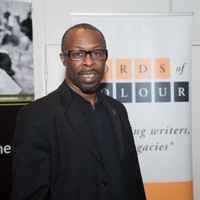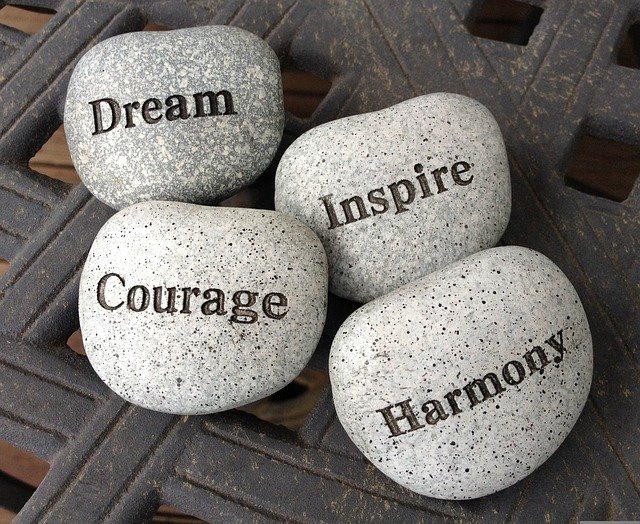Hello…. my name is Kevin Hylton…and I am a Professor. 
I was invited to speak at the University of Kent a few years ago as part of the Inspirational Speakers Series. I have been privileged by invitations to speak all over the world though I was particularly pleased to speak to UK based staff and students about the student experience and belonging in HE. My experience of being on both sides of the desk and in senior leadership positions enables me to offer some insights that my predominantly White counterparts would generally be unable to share.
In the title of this blog, I share the opening line from my Inaugural Professorial Lecture in Leeds. Hello…. my name is Kevin Hylton…and I am a Professor. It was a full house. The audience cheered. They also knew that there was only around 60 Black Professors out of approximately 13, 000 in the UK. My work that brought me to this place on race, social justice and in particular the development of Critical Race Theory (CRT) since the 90s has led me to challenge the dominant tropes of race and racism in society by using the contexts of sport, leisure and education as seemingly benign starting points for significant social issues. If I can illustrate a critique of social justice and racial dynamics in these domains, then you should be able to take the ideas and apply them to yours.
My inaugural was made up of people from every domain I had inhabited since the start of my academic journey as an undergraduate in 1983-1987. Past lecturers, local authority staff, colleagues from further education and higher education past and present students. Intermingled with them were friends, acquaintances and generations of my family. Siblings, mother, children, partner. No one was missing except the absent presence of a person of colour from my degree, MA, or lecturer, nor a person of colour senior to me in any of my roles in local government, further education, or higher education – because there weren’t any.
Hello…. my name is Kevin Hylton…and I am a Professor, was poignant for those in the auditorium for their own personal and professional reasons. Many had seen me on this road less travelled and fully understood the travails of each major step, and the everyday negotiations of what Fanon and DuBois would recognise as a Black man in White environments. Code switching, as I navigated the cultural capital and hegemony of institutions without obvious role models and mentors.
My parents arrived from Jamaica as members of the Windrush generation. I am the second youngest of two sisters and two brothers, yet in 1983 I was the first in my immediate or extended family to go to university. I was not critical of race and ethnicity in any way in 1983. I knew that people were often defined in that way and that it made me uncomfortable in the classroom or on television when certain topics came up. But race was never a point of conversation in my household as much as it became so in my academic and professional career. Being a Black-Brit-Carib, straight, able-bodied, adopted northerner, from East London, and male, I am in a constant state of reflexivity and consciousness. Either implicitly or explicitly I rarely have an interaction that is not racialised in some way. I grew up in Leeds in the 70s where the National Front would regularly leaflet in the city centre and at football matches. I remember being punched by one of them as I walked through town. I must have been nine or ten.
In contrast to the NF’s overt expressions of racial indifference, in education I remember the stealth of microaggressions in the classroom. In primary school, we had to sing the song Black and White by the band ‘Three Dog Night’. A more recent equivalent would be Michael Jackson’s ‘Black and White’ or Stevie Wonder and Paul McCartney’s ‘Ebony and Ivory’. For a young primary age Kevin Hylton at six or seven years in a predominantly White school in Leeds, the decision to have my class sing that song by my teacher heightened my sense of difference and contributed to questioning my sense of belonging. Since primary school I can recount several instances where race played a significant part in what I took from that experience. For example, a lecturer explaining standard deviation using the term n****r in the wood pile to describe a variable off the line of best fit made me so disoriented I was struck speechless. Another student sharing with me that You’re the first Black fella I’ve ever met…yuz alright aren’t yer…?! was meant as a compliment but we now know how microinsults work. And a colleague who remarked that the increase in media attention on racism must be really good for my research, offered an interesting example of a microinsult (pseudo-compliment) and a microinvalidation (no recognition of the impact of racism on me) in one.
Working backwards from my inaugural, my doctoral thesis emerged out of my unease at the glass ceiling in the local authority I was working at as an inner-city community sport development officer. I had few Black role models in my authority and felt further isolated in meetings in and out of my organisation. In conducting my Masters research before that, across several local authorities, I found similar stories from racialised officers where ‘race’ and racism affected their opportunities and well-being in the workplace. Yet at the same time I needed to establish what institutionalised processes framed and perhaps even caused these racial formations. A few years later my MA became the catalyst for my PhD journey.
I was appointed to my university in Leeds in January 1998 while completing my PhD. Some of the highlights of my career include a promising researcher fellowship, becoming head of the Diversity, Equity and Inclusion (DEI) research centre , and later Professor Emeritus (Leeds), Interim Pro Vice Chancellor Culture, Equality and Inclusion (Sussex), Honorary Fellow at Leeds Trinity (where I did my degree, previously Trinity and All Saints College -TASC), Visiting Professor Victoria University, and the University of South Wales); and having written the first book in the world on Critical Race Theory and Sport many would point to me as an example of how people of colour can succeed in HE. My view is less rose tinted. Ask my students, my colleagues, my children.
My progress in the academy has not been easy, straightforward or without incident. I have seen more excellent people of colour leave my institution and the sector than stay. In my experience, higher education liberates as it constrains. It takes a special set of skills, emotional intelligence, reflexivity, and support to ensure longevity. Though this is the same for all senior academics, the racialised dimension is clear and present.
I generally write and conduct research with my younger self in mind. What knowledge and insights should have been available to me as an undergraduate, postgraduate, practitioner, leader? What would be useful to equip students and practitioners to enhance their lexicon to name, describe and disrupt ‘race’, racialisation, racism, and its intersections in the everyday? For me the dominant ideas in sport, leisure and education do not empower its readers to focus on race, racism nor the lived experience of racialised populations. I argue that as activist scholars we cannot be opportunistic about how we make space for transformation but continue to do so where we are, whenever we can.

